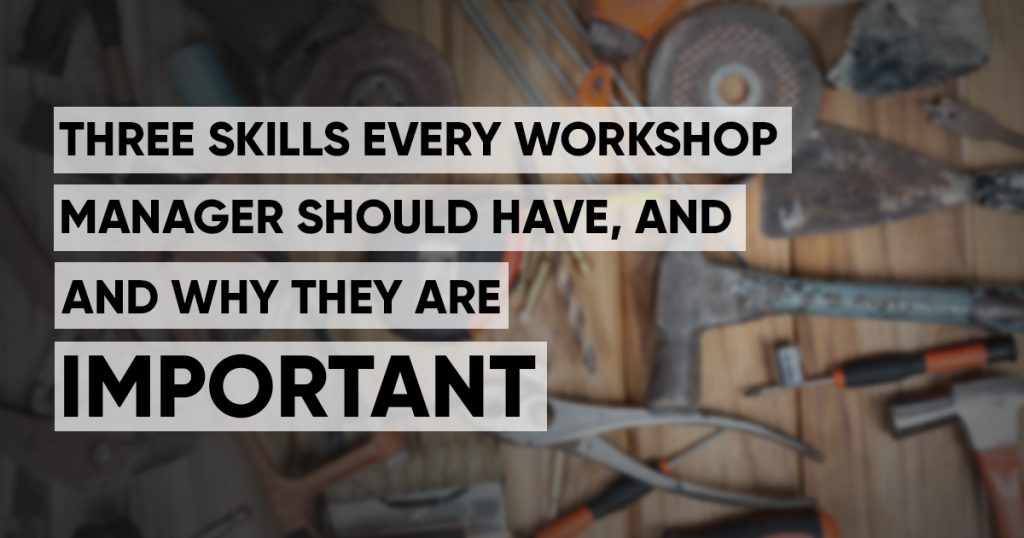Many of the best workshops are managed by mechanics and engineers who ‘rose through the ranks’ or opened up their own shop, rather than business school graduates. Most of the time, this is for the best. Workshops are hands-on places where technical knowledge and experience can be worth a great deal more than an MBA degree.
However, it does mean that a lot of workshop managers need to work on a few key leadership skills to operate the best shop possible. The three most important thing you can do are:
1. Believe in your ability to lead and to manage.
You’re in the position you are for a reason. You know how to keep a shop running efficiently when things are good, and how to respond to an emergency.
The skills you’ve built up as a mechanic, technician or engineer apply almost equally well to management. Treat any problem as you would a mechanical one. First, determine what *should* be happening. Look for signs that something isn’t working the way it should. Figure out what is at the root of the problem, and execute a plan to put it right.
You need to believe in your own skill and authority before your employees can believe in you. Even if it’s a case of ‘fake it till you make it’, managing with confidence can lead to managing with competence.
2. Keep a clear head.
Don’t lose focus on the important issues in a crisis. Good managers are leaders, and leaders are the ones who step in when things go wrong and start working to put them right. Anxiety and even panic are normal human reaction to stress, but anyone can develop their ability to lead in a crisis.
The main thing is to prioritise the really important issues and not to let the ‘small stuff’ distract you from fixing the really urgent stuff. The next thing is to delegate, putting a trusted employee in charge of just as much as they can handle on their own. Get everyone working productively, and solve the problems one at a time.
You need these skills because people naturally follow someone they know can keep their head in a crisis, and get everyone working as a team. Once you’ve managed tour people through one crisis – hopefully a small one – you’re in as a ‘real leader’.
3. Build a really good team
No one can lead alone, and no one can really succeed as a manager if they’re managing a bunch of fools. Surround yourself with the best and most competent people you can, and make sure that all of the important skill sets you need to run the place exist – even if you leave the room.
A really good team can operate without you there every second. Perhaps none of them can replace you entirely, but between them they should be able to handle 95 to 100%% of the day to day operations of the workshop.
Why is that important? Because even the boss deserves a day off once in a while.


